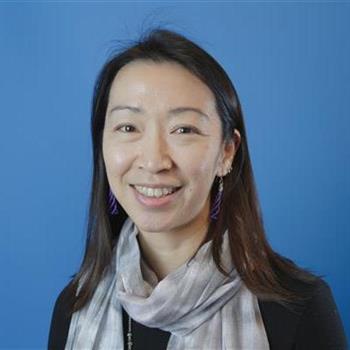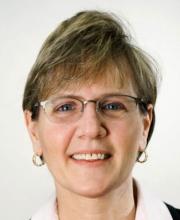The field of computer science is becoming more prominent every day. Studies show that 90% of parents want their children to study computer science, while only 45% of high schools have computer science course offerings. Limited access to digital skills threatens to widen the income gap between those who have the skills to succeed in the 21st century and those who do not. To reduce the gap, all young people need the opportunity to learn computer science, especially those least likely to have access.
Microsoft partners globally with nonprofits, governments, educators, and businesses to ensure all youth have access to digital skills training and inclusive computer science education. When we act at the local, state, federal, and global levels to promote access to computer science education for all young people, amazing things happen!
Here in New England, we’re proud to support initiatives and educators working hard to increase the number of students participating in computer science courses. One example of this is our partnership with the governor’s office during Massachusetts STEM Week, during which we hosted the lieutenant governor and her staff for a STEM makerspace tour and briefing at our Microsoft Garage.
In honor of Computer Science Education Week, we’re celebrating a few of the rockstar computer science educators and Microsoft partners here in the region. Meet Anita Lavakumar, Haruna Hosowaka, Denise Matuszczak, and Shereen Tyrrell.
Anita Lavakumar & Haruna Hosokawa, Boston Public Schools

Anita Lavakumar and Haruna Hosokawa respectively serve as program director for Computer Science and program director for STEM and Robotics Initiatives at Boston Public Schools. They have brought their students to visit our campus for various field trip opportunities to meet NERD employees, create projects in The Garage, and be exposed to an office setting.
“With the evolution of technology and computer science, our future will see these skills being utilized in every career path available,” Lavakumar and Hosokawa say. “Eventually, computer science will be a language that all students will need to know in order to go into a profession of their choice we will eventually need to change our mindsets around this as educators.”
As educators in tech, Lavakumar and Hosokawa have been early adapters to this mindset change. They recognize the importance of exposing younger generations to computer science, and are working to ensure that opportunities to learn these skills are accessible.

“Some groups are underrepresented in computer science, and so not only will we have to look at curriculum deeply, but we will have to take a closer look at how we are reaching a variety of students,” they say. “Having equitable access to computer science in K-12 education will provide an experience for each student that allows them to be empowered and prepared citizens for the future.”
After seeing their students exposed to the field, both educators say they have seen a huge difference in not only their school work, but overall confidence as well.
“They continue to get used to the idea of ‘failure’ as being a part of the process,” they tell us. “The concept of finding solutions to problems is not taught in any other subject, and students therefore learn to be persistent and persevere when met with a problem in their process. This will continue to help students throughout high school, college, and beyond.”
Denise Matuszczak, Springfield Public Schools

Denise Matuszczak serves as the senior administrator of Digital Learning and Assessment at Springfield Public Schools. Springfield Public Schools’ partnership with Microsoft has been an integral part of Springfield’s WeLearn initiative (WeLearnSPS).
“The tools and professional development provided by Microsoft have empowered our educators to ‘think outside of the box’ with respect to their classroom teaching and to consider ways to increase efficiency and productivity,” Matuszczak says. “Understanding that educators and students are at all levels of comfort with using technology tools, Microsoft provides many entry points in their applications to suit a variety of users’ needs. Working with teachers and students in the classroom and hearing their perspectives on how particular tools can be used to boost learning is the most rewarding aspect of my work in Springfield.”
Matuszczak recognizes that computer science education is not only about computers, but the use and development of critical thinking and problem-solving skills.
“In our rapidly changing global market, these skills are essential in preparing students to explore, innovate, and create new technologies and solutions employers and consumers demand,” she says. “All students need opportunities to develop the core competencies of critical thinking, problem-solving, and collaboration which they can then apply to any circumstance.”
Through WeLearnSPS, students not only gain access to high speed internet, but also daily access to laptop devices with Microsoft applications both at home and at school.
“Many of our schools in Springfield are implementing a student device take-home program whereby students are assigned a laptop and can take the device home to complete work assigned by their teachers,” Matuszczak says. “Extending learning time beyond the regular school day is a huge benefit to students and allows families to be active partners in student learning.”
Through a grant from the National Science Foundation, Springfield educators and University of Massachusetts researchers are implementing the CSforAll initiative over a four-year period.
Springfield educators teaching kindergarten through fifth grade will develop and vet a complement of lessons integrated with computer science standards across content areas.
“The goal is to develop a collection of lessons, integrated with computer science standards, that any kindergarten through fifth grade teacher may use in their classroom teaching,” Matuszczak tells us.
Shereen Tyrrell, Burlington High School

Shereen Tyrrell is a computer science teacher and the Innovation Pathway lead at Burlington High School. Currently, she’s working across departments to integrate computer science everywhere — and to encourage more girls to take computer science courses.
Like our partners at Boston Public Schools, Tyrrell sees a huge confidence boost in her students after they are exposed to a computer science education.
“I love to see students who are interested in art or business suddenly understand how computers work — and gain confidence that they can create programs to solve problems,” Tyrrell says. “When they get the ‘ah ah’ moment, with a smile and a cheer, it’s the best thing to see. All of a sudden, they see the world differently, and see themselves differently as well.”
Tyrrell’s students learn they are allowed to learn by trying, failing, and trying again. “Being able to take a risk is an important life skill,” she says. “Computer science gives students a unique chance to practice being resilient.”
Microsoft has led state efforts to expand access to computer science in Massachusetts, and Tyrrell has sat side-by-side several members of our team during advisory committee meetings.
“They have helped to inform policy makers and educators, hosting tours for teachers, superintendents, and more at The Garage,” she explains.“When I used to think of Microsoft, I used to think of a big company and of course, the products. As a teacher I now see Microsoft is about people. Everyone I’ve been fortunate enough to work with has been intelligent, compassionate, and dedicated — and goes above and beyond to help educators. They have been my partner every step of the way. Their support — from software to hardware, online curricula, and policy leadership — has been the wind beneath my wings!”
It’s educators like these that make an impact on students’ lives and prepare them for bright futures. Thank you to the women above — and every computer science educator around the world — for all that you do!
Learn more about how Microsoft is trailblazing a path for computer science education here.

